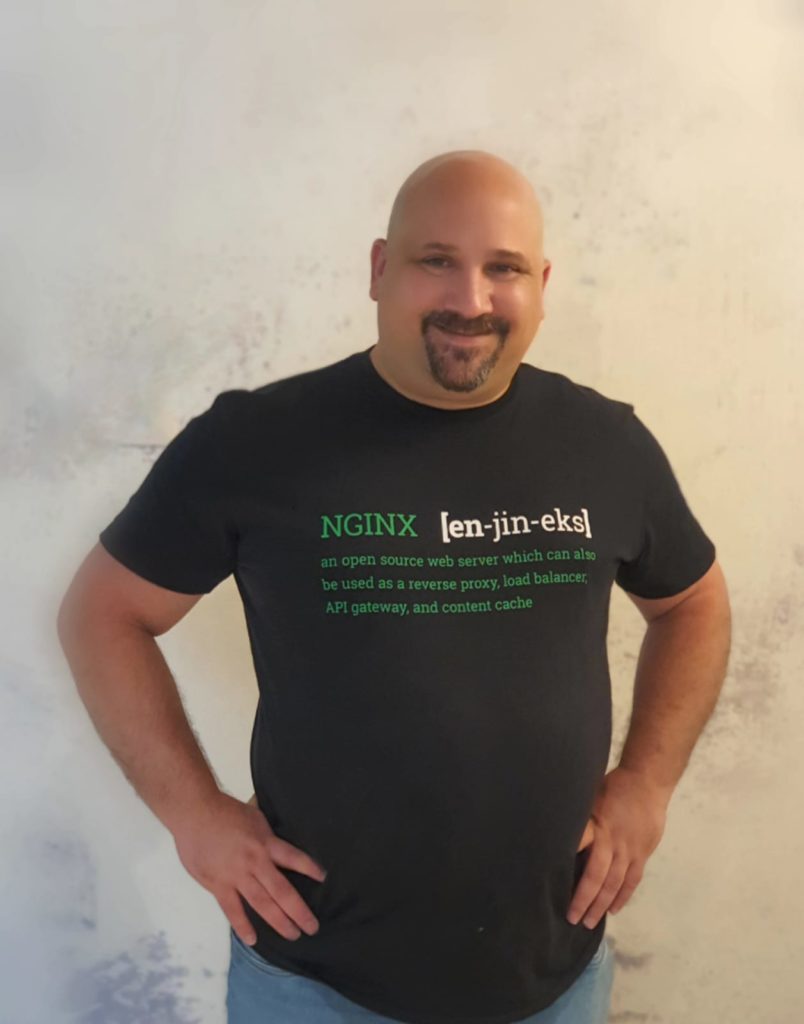Especialista en DevOps
290 Horas / 7-9 Meses, Programa a Tiempo Parcial
Este programa DevOps a tiempo parcial cuenta con instrucción experta, proyectos prácticos, metodologías de automatización impulsadas por IA y una conexión real con la industria para que los graduados sean contratados.
DevOps es la unión de personas, procesos y productos que permite la entrega continua de valor al final–usuarios. DevOps pretende crear una cultura y un entorno en el que la creación, las pruebas y la publicación de software puedan tener lugar de forma rápida, frecuente y fiable, por lo que la empresa puede innovar como un inicio y escala como un empresa.
Wawiwa's DevOps Programa enables graduados entender por qué organizaciones necesitan DevOps y a aprende cómo a empezar con DevOps. Los becarios aprender las ideas y técnicas clave para aunar desarrollo y operacionesEl resultado es alta calidadde alta velocidad software desarrollo y entregary. Crucial, nuestro programa integra el uso de herramientas avanzadas de Inteligencia Artificial en el proceso de formación. Esto capacita a los alumnos para comprender y aplicar Metodologías de automatización basadas en IAmejorando eficazmente el ciclo de vida del desarrollo y la eficacia de la implantación.
Permitir a los estudiantes salvar las distancias en el desarrollo y las operaciones de software
Lleve las habilidades de liderazgo y colaboración al siguiente nivel enseñando a los estudiantes a trabajar en equipos para gestionar datos y llevar a cabo actualizaciones para nuevos lanzamientos de productos. Al final, los graduados pueden ayudar a las organizaciones a desarrollar productos más rápidamente y mantener fácilmente las implantaciones existentes.

Abrir puertas con conexiones industriales
Equipa a los estudiantes para tener éxito en un campo en rápida expansión con la ayuda de nuestra red de expertos en DevOps, instructores, socios de contratación y antiguos alumnos. El plan de estudios de Especialista DevOps fue creado en colaboración con el empresas líderes del sector para que nuestros programas respondan lo mejor posible a las necesidades de la industria local, garantizando que los graduados estén preparados para trabajar en cuanto terminen el programa.
Guiar a los estudiantes para que realicen un proyecto profesional
A lo largo del programa, se adquieren habilidades prácticas mediante la realización de proyectos que abordan problemas del mundo real de principio a fin. Los estudiantes adquirirán experiencia práctica en la publicación y despliegue de código, y trabajarán en colaboración con otras personas para superar los obstáculos de la publicación, y más, recopilando una cartera de proyectos diseñados para reforzar lo que los estudiantes han aprendido en cada unidad para publicar actualizaciones de manera eficiente.
¿A quién va dirigido el programa?
Administradores de sistemas, desarrolladores de software y profesionales de TI/operaciones que deseen trabajar como especialistas en DevOps en su próximo paso profesional.
Profesionales de primera categoría
Este programa único fue construido por un equipo profesional formado por los principales expertos en DevOps, con amplios conocimientos y experiencia en la formación también.

Eran Lasser
Director General de Wawiwa
Eran es un emprendedor de la educación tecnológica con más de 20 años de experiencia. Eran fundó y dirigió cuatro empresas de formación en TI: Formación John Bryce (Israel), TRIG (China), JB-IQsoft (Hungría), KocBryce (Turquía). Eran también se asoció para establecer DAN.IT Educación (Ucrania), Techub (Georgia), etc. Además, Eran dirigió Mentergy, que ofrece soluciones de aprendizaje electrónico y a distancia. A lo largo de los años, fue responsable de la reconversión profesional de más de 50.000 personas que ahora trabajan como profesionales de la tecnología.



Daniel Anderson
Jefe de Formación
Daniel es responsable de la actualización de los temas de vanguardia en los programas de formación técnica de la empresa y del mantenimiento de sus metodologías de formación. Daniel fue formador jefe en el Centro de Formación Técnica de las Fuerzas de Defensa de Israel y se graduó en el proceso de formación de las FDI. Desarrolla e imparte una amplia gama de cursos de programación, y es Desarrollador Full-Stack y Científico de Datos.


Lidor Gerstel
Responsable del Programa DevOps
Lidor es un DevOps freelance e instructor experimentado con un historial demostrado de trabajo en la industria de la educación superior. Tiene más de 10 años de experiencia en el sector tecnológico y es experto en Docker, AWS, administración de sistemas Linux, sistema de nombres de dominio (DNS) y Jenkins.


We Measure Success by Employability
Tech training for us is not the end goal – it’s just the beginning. At Wawiwa, we measure success by the employability of our graduates. Our programs are built with that goal in mind: train students to become job-ready and help them land a lucrative tech job upon graduation.
This employability focus delivers results around the world – over 70% of Wawiwa graduates land a tech job within two months of graduation.
Plan de estudios
- ¿Qué es Linux?
- Tipos de sistemas operativos
- Distribuciones Linux y Ubuntu
- Instalación de Ubuntu
- Instalación de VirtualBox
- Particionamiento de Ubuntu
- Introducción a la edición de textos
- Vim -Vi Mejorado
- Nano
- Sistemas de archivos Linux
- Instalación manual
- Trabajar con archivos - permisos
- Archivos ocultos
- Gestión de archivos, copiar, borrar, renombrar
- Enlaces simbólicos
- Búsqueda de archivos
- Acceso a distancia
- Autenticación basada en claves
- Bonificación - Flask Web Framework
- Uso de scp para la transferencia de archivos
- Transferencias de archivos
- Wget
- Rizar
- Scripting frente a programación
- Scripting - Grep
- Control del flujo
- Uso de Xargs
- Gestión de software con APT
- Gestión de la actualización del software
- Búsqueda de software con APT
- Gestión de software: añadir, eliminar y limpiar
- Proteger el servidor con Fail2Ban
- Seguridad ufw Cortafuegos
- Desactivación de servicios innecesarios
- Gestión de permisos sudo
- Comando Ps
- Ver actividad con top
- Comprobación del uso del disco - df
- Comprobación de la memoria - libre
- Programación de tareas con cron
- Visión general de Nginx
- Nginx configurando SSL
- Instalación y administración de CentOS 7
- Gestión de paquetes con YUM
- Uso de Yum para buscar paquetes
- Utilizar un repositorio de terceros
- Gestión de los servicios de fondo
- Uso de Rsync
- Administración del sistema de archivos LVM
- ¿Qué es DevOps?
- ¿Por qué DevOps?
- ¿Quién utiliza DevOps? ¿Dónde es útil?
- Cadena de herramientas DevOps
- DevOps en negocios y empresas
- Introducción al control de código fuente
- Introducción a Git
- Terminología Git y GitHub
- Instalar Git en Linux
- Instalar Git en Windows
- Configurar Git
- Configurar repositorio Git en GitHub
- Bitbucket - introducción
- Gitlab - introducción
- Compromiso Git
- Registros Git y añadir archivos
- Comprender los flujos de Git
- Líneas de comandos para principiantes
- Shell Scripting
- Introducción y conceptos básicos
- Si las declaraciones
- Para bucles
- Bucles While
- Finalizar un script
- Casos
- Estado de salida
- Funciones
- Variables
- Python 3
- Introducción e instalación
- Conceptos básicos de Python
- Operaciones, tipos de datos y archivos, y tratamiento de excepciones
- Funciones, generadores y REGEX en Python
- Introducción y ventajas de Vagrant
- Terminología y funcionamiento
- Instalación y configuración
- Vagrant en acción
- ¿Qué es Docker?
- Instalación de Docker
- Trabajar con imágenes Docker
- Creación de aplicaciones web en contenedores
- Creación de DockerFile
- Etiquetado de contenedores
- Push to Docker Registry
- Redes Docker
- Despliegue de contenedores Docker en producción mediante Docker Compose
- ¿Qué es Jenkins?
- Instalar y configurar Apache Tomcat y desplegar Jenkins
- Instalar y configurar Apache Maven
- Configurar Jenkins y plugins
- Configurar agentes en Jenkins (esclavos)
- Creación de distribuciones Jenkins
- Configuración de variables de entorno en Jenkins y uso de parámetros
- Construye el código, prueba el código y revisa los pasos en la consola de tareas
- Ejecución multitrabajo
- Construir JenkinsFile y ejecutar Jenkins Groovy Pipelines
- Ejecutar pasos en paralelo en Groovy Pipelines
- Invocación de trabajos como parte de Groovy Pipeline
- Utilizar el generador de fragmentos de código para crear pasos en pipelines
- Crear un CI con Docker
- Agentes de provisión como contenedores
- Despliegue en entornos en canalizaciones
- ¿Qué es un artefacto?
- Registro Docker privado
- Instalar y configurar Jfrog Artifactory
- Instalar y configurar Nexus OSS
- Cargar artefactos
- Análisis estático de código con sonar
- Visualización de resultados en SonarQube
- Terraform - introducción
- Infraestructura como código
- La diferencia de Terraform
- Instalar Terraform en Linux
- Instalar Terraform en Windows
- Crear el primer archivo Terraform
- Recursos
- Proveedores
- Variables
- Atributos de salida
- Expresiones de interpolación
- Módulos
- Espacios de trabajo
- Introducción a Puppet
- Configurar el Puppet Master
- Arquitectura de marionetas
- Recursos para marionetas
- Lenguaje específico de Puppet
- Manifiestos Puppet
- Definiciones de los nodos
- Módulos
- Parámetros
- Plantillas
- Clases
- Desplegar una aplicación
- Introducción a Ansible
- Inventario Ansible
- Introducción a YAML
- Guías Ansible
- Módulos Ansible
- Variables Ansible
- Condicionales
- Bucles
- Funciones de Ansible
- Resolución de problemas, pruebas y validación
- Introducción a K8s (Kubernetes)
- Despliegue de los K8
- Configuración de Minikube
- Primera solicitud de K8s
- Kubectl - conceptos básicos
- Escala de nodos k8s
- Etiquetas y selectores
- Control sanitario
- Interfaz web
- DNS y descubrimiento de servicios
- Volúmenes
- Secretos
- Control de uso y recursos
- Autoescalado
- Auditoría
- Alta disponibilidad de K8s
- Maestros K8s
- Empaquetado y despliegue de aplicaciones con Helm
- Tipos de entrada
- Microservicios
- Despliegues canarios
- Despliegues azul y verde
- TLS mutuo
- Introducción a AWS - conceptos básicos
- IAM
- Almacenamiento de objetos y CDN de AWS - S3, Glacier y Cloudfront
- CE2
- Ruta53
- Bases de datos en AWS
- VPC
- AWS BEANSTALK
- Pila de AWS CloudFormation
- AWS Code-Deploy y Code-Pipeline
- Servicios AWS Elastic Kubernetes
- Introducción a los registros de aplicaciones
- Comprender los conceptos de supervisión (Nagios, Zabbix)
- Introducción a ELK (ElasticSearch, LogStash, Kibana)
- APM (New Relic, Datadog, Dynatrace)
- Cómo redactar su CV DevOps
- Ensayo rápido de todos los conceptos clave del curso
- Preguntas y entrevistas técnicas de entrevistas de trabajo reales
Lea nuestros blogs...

Lo mejor de dos mundos: la función de los especialistas en DevOps
Algunos empleos tecnológicos lucrativos consiguen mezclar la diversión y las responsabilidades de muchos otros puestos tecnológicos. Uno de ellos es el de especialista en DevOps.

Cuando los equipos tecnológicos hacen tic tac: La creación de productos digitales
La industria tecnológica alberga un amplio abanico de puestos. Cuando directivos, diseñadores, desarrolladores y otros especialistas en tecnología se unen con un propósito común, los productos digitales que lanzan son realmente increíbles.
